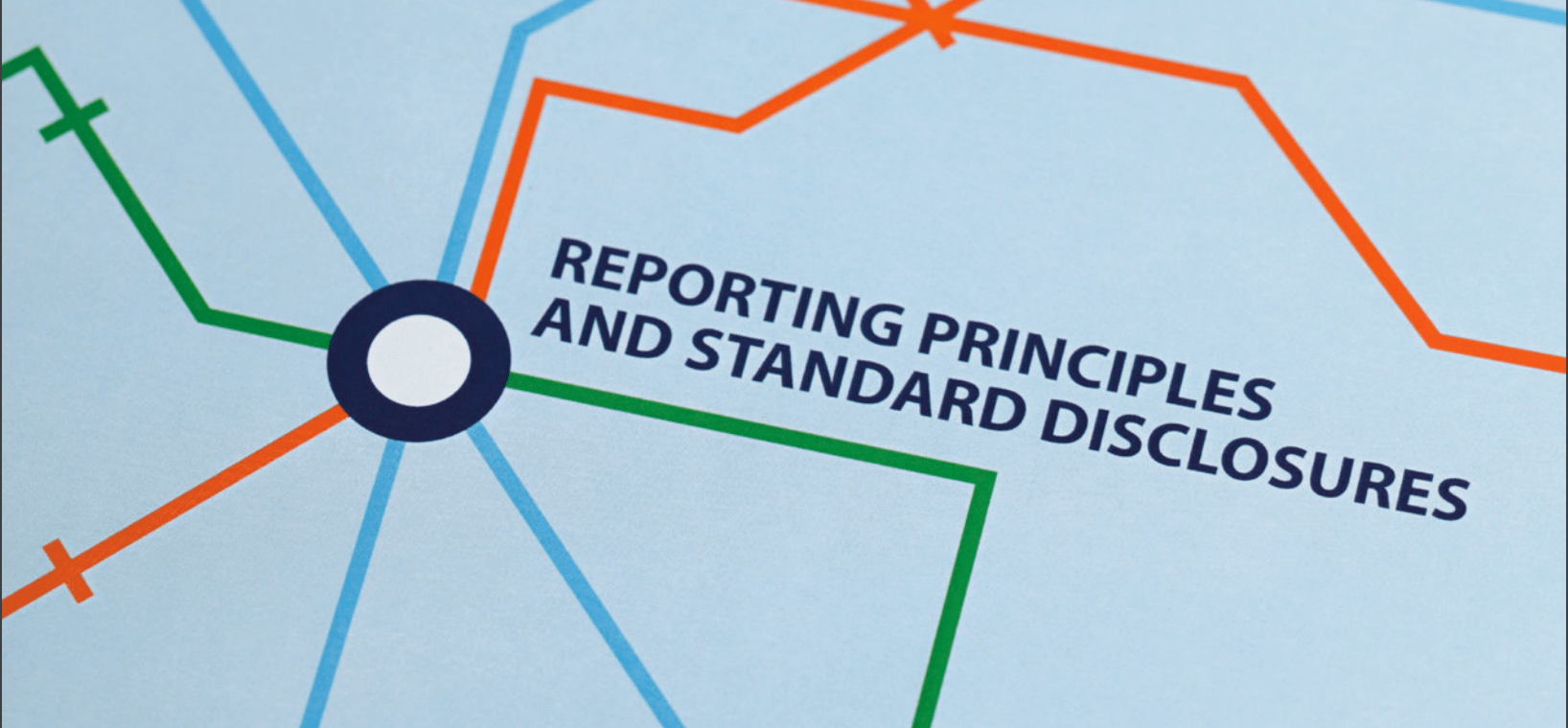
An ever-increasing number of companies and other organizations want to make their operations sustainable. Moreover, expectations that long-term profitability should go hand-in-hand with social justice and protecting the environment are gaining ground. These expectations are only set to increase and intensify as the need to move to a truly sustainable economy is understood by companies’ and organizations’ financiers, customers and other stakeholders.
Sustainability reporting helps organizations to set goals, measure performance, and manage change in order to make their operations more sustainable. A sustainability report conveys disclosures on an organization’s impacts – be they positive or negative – on the environment, society and the economy. In doing so, sustainability reporting makes abstract issues tangible and concrete, thereby assisting in understanding and managing the effects of sustainability developments on the organization’s activities and strategy.
Internationally agreed disclosures and metrics enable information contained within sustainability reports to be made accessible and comparable, providing stakeholders with enhanced information to inform their decisions.
In this context G4 was planned and developed. The GRI Sustainability Reporting Guidelines are periodically reviewed to provide the best and most up-to-date guidance for effective sustainability reporting. The aim of G4, the fourth such update, is simple: to help reporters prepare sustainability reports that matter, contain valuable information about the organization’s most critical sustainability-related issues, and make such sustainability reporting standard practice.
It is crucial for society and markets that sustainability reporting evolves in terms of content, and from an exceptional activity undertaken by a minority of leading companies to a standard practice.
Together with being more user-friendly than previous versions of the Guidelines, G4 has an increased emphasis on the need for organizations to focus the reporting process and final report on those topics that are material to their business and their key stakeholders. This ‘materiality’ focus will make reports more relevant, more credible and more user-friendly. This will, in turn, enable organizations to better inform markets and society on sustainability matters.
While organizations may monitor and manage a far wider array of sustainability-related topics due to their everyday management activities, this new focus on materiality means that sustainability reports will be centered on matters that are really critical in order to achieve the organization’s goals and manage its impact on society.
The Guidelines have been developed through an extensive process involving hundreds of reporters, report users and professional intermediaries from around the world. G4 therefore offers a globally relevant framework to support a standardized approach to reporting, encouraging the degree of transparency and consistency that is required to make information useful and credible to markets and society.
G4 is designed to be universally applicable to all organizations, large and small, across the world. The features of G4 – to make the Guidelines easier to use, both for experienced reporters and for those new to sustainability reporting from any sector – are supported by other GRI materials and services.
As with all GRI Guidelines, G4 includes references to widely accepted and used issue-specific reporting documents, and is designed as a consolidated framework for reporting performance against different codes and norms for sustainability.
G4 also provides guidance on how to present sustainability disclosures in different report formats: be they standalone sustainability reports, integrated reports, annual reports, reports that address particular international norms, or online reporting.
The emerging idea of integrating strategic sustainability-related information with other material financial information is a significant and positive development. Sustainability is, and will increasingly be, central to the change that companies, markets and society will be navigating. Sustainability information that is relevant or material to a company’s value prospects should therefore be at the core of integrated reports.
Download the report here.












